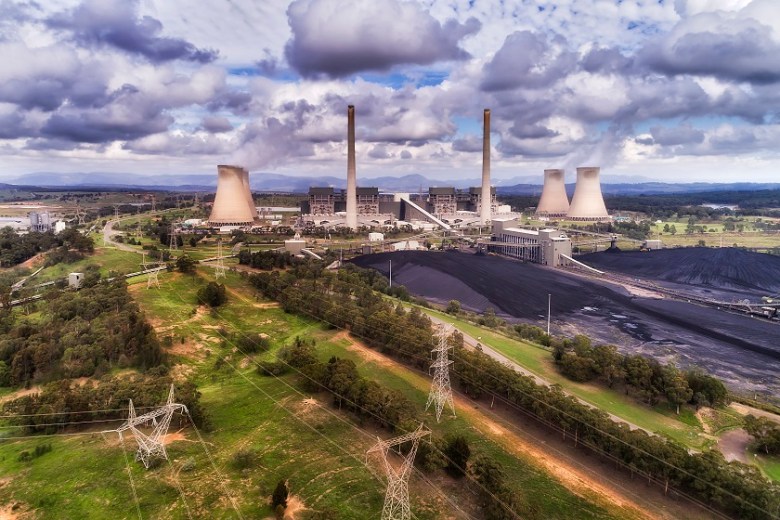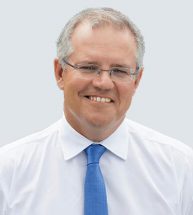
A $2 billion deal between NSW and the Commonwealth to boost gas supply will commit both governments to invest in clean technology and energy efficiency, the Prime Minister says.

Scott Morrison says it’s the first of many similar deals he hopes to sign with state and territory governments across Australia.
Mr Morrison and NSW Premier Gladys Berejiklian signed an MOU on Friday, describing it as a landmark for the nation.
The agreement means NSW will provide an additional 70 petajoules of gas for the east coast market each year, and in return Canberra will fund NSW emission reduction initiatives and underwrite the delivery of new interconnectors and renewable energy projects.
Annual gas consumption is around 120 petajoules a year, so the new commitment represents a sizeable whack.
“There is no credible plan to lower emissions and keep electricity price down that does not involve the greater use of gas as an important transition fuel,” Mr Morrison said.
“This plan is about getting greater access to that gas, as a vital accompaniment to our record investment in renewables.
“Our agreement also outlines a responsible transition of the NSW electricity sector to lower emissions technologies, while recognising the critical contribution that energy dependent manufacturing jobs make to the economy.”
He said the agreement sets out a “plan of practical action” to invest in clean energy, hydro research, energy efficiency and technology to reduce emissions from coal extraction, preparation and use.
The deal also includes:
- $960m of federal funds for NSW to upgrade energy grid and invest in emissions reductions.
- Joint underwriting of delivery of HumeLink and Queensland-NSW interconnectors
- Removing barriers to coal supply at the Mount Piper Power Station
- Financial support for pilot renewable energy zone in the Central West.
Mr Morrison said the plan would help Australia “meet and beat” its 2030 carbon emission targets, but didn’t say specifically what it would deliver in terms of reductions.

Ms Berejiklian said the agreement meant NSW could continue to strengthen and diversify its energy sector by securing traditional sources while growing its currently $26 billion pipeline of energy projects, both renewable and non-renewable.
“We need to make sure that we maintain our energy security into the future and lowering emissions doesn’t mean getting rid of every form of energy that we currently use,” she said.
Greens MP David Shoebridge described the plan as dangerous.
“We don’t need to be extracting more gas to “transition” to renewable energy, we need to be building solar, wind and renewable storage now,” he said.
The Climate Council said the deal had only increased investment in fossil fuels, which would drive climate change.
“You don’t reduce emissions by increasing investment in fossil fuels,” Climate Councillor Greg Bourne said.
Comment below to have your say on this story.
If you have a news story or tip-off, get in touch at editorial@governmentnews.com.au.
Sign up to the Government News newsletter
I fail to see how approving new fossil fuel projects will help to address Climate Change, these projects will use a massive amount of water we do not have. . The money would be better spent on investing in renewable energy. The only ones that will benefit from this deal once again is the Fossil Fuel Industry.
Fracking for gas anywhere near our Great Artesian Basin is insane #waterislife
When will we feel like our government is making decisions in the best interests fir the health and welfare of our children? Its becoming a distant and very occasional memory.
This is a terrible idea. There are no technical barriers to renewables, simply political ones. Scotland is moving towards 100% renewables much faster than we are while we are much better positioned to do so. There are thousands of viable sites for pumped hydro storage, wind and solar. I feel betrayed by my government who. I believe are captive to the mining industry. This goes for both sides of politics. I have no faith in my government making decisions in the best interest of the public. they act in the interests of corporations. it is the worst type of treason because they are destroying the planet, communities and the future of our children for profit and power, I don’t understand why they are not ashamed.
There is no credible energy transition plan for an economy like Australia in particular, that does not involve the greater use of gas as an important transition fuel,”
Wrong – One such plan has already been delivered to his government, and largely ignored. The Australian Energy Market Operator has delivered a highly credible transition path to a low carbon grid in its Integrated System Plan, which provides a 20-year blueprint for what needs to be done to best manage “business as usual”, or even a “step change” scenario where policy makers finally get serious about climate change. The role of gas in this plan is minimal!
THis is madness …more fossil fools .MORE environmental distruction …more water loss more ,,more pollution ,,more damaged aquifers ..more poisoned water ,,,more prime lands and native habitat distroyed
This is so wrong! Fracking creates worse emissions than coal and uses so much water as well as polluting our groundwater. We have plenty of natural gas which is less damaging but it’s all exported. This is a total travesty. Vandals!
This plan is about getting greater access to gas through fracking. Who in the government thinks the public is so stupid they wouldn’t work that out fairly quickly?
This is so wrong, we will lose so much water, poison our rivers and aquifers which will cost us more money in the long term, we just don’t have the water, we can’t take water from the agriculture industry. We can’t destroy our land and make it even drier which exabytes Climate Change. We want water for Australian grown food not for fossil fuel interests. Australian government needs to invest in our innovation, our intellectual abilities and give more support to research. Much better for our economy than just digging up resources that destroy our ecosystem. I wish our politicians would get out of bed with the fossil fuel mining industry.
This is based on deliberate misrepresentation of data about emissions from gas extraction processes. The fugitive emissions are only visible with special equipment, and roughly 10% of wells are dysfunctional from their beginning, this increases each year of operation. Also they have the potential to use huge amounts of our scarce and precious water, which then becomes toxic to soil, flora and fauna. There is no workable plan for dealing with this. Gas is more damaging to our environment than coal, and to pretend it is a necessary transition stage is a way of getting increased use of fossil fuel, to oblige the government’s cronies. Australia is for sale for short term profits for a few. Just fund renewables.
This plan is pure insanity … and makes the government look corrupt. We know companies like Santos are amongst the biggest donators to the major parties … why else would the government be proposing to increase production of fossil fuels that destroy good farming land and put farmers out of business, suck billions of litres of water out of the Great Artesian Basin (on the driest continent on earth) and pour our tonnes of methane, a dangerous greenhouse gas more damaging than CO2? All in the name of … fighting climate change? Whah?
The proposal almost doubles the amount of gas in NSW in exchange for funding renewables and underwriting the delivery of new inter-connectors. I do not understand why renewable energy projects need to be funded and why gas is a better alternative than nuclear energy which emits no greenhouse gases. I agree that the electricity grid needs upgrading and every effort should be made to reduce losses by installing new DC current lines. If renewables need funding the Commonwealth would be better advised to fund Local Councils to build Wind and Solar Farms thereby keeping costs down to all ratepayers.